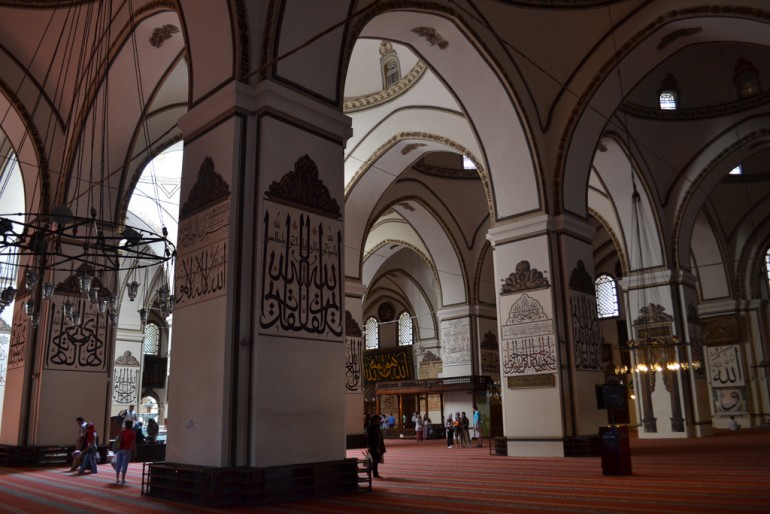Sponsored Listings:
A suicide bomber blew herself up on Wednesday outside the Grand Mosque in Bursa, the Turkish city’s main tourist attraction, injuring several people.
The attack came a day after the U.S. Embassy in Ankara updated its travel warning for the nation, citing “credible indications that terrorist groups are seeking opportunities to attack popular tourist destinations throughout Turkey.” A Turkish official confirmed the attack was a suicide bombing, speaking on customary condition of anonymity. The affiliation of the bomber was unknown, the official said.
The bombing is the fifth in a major Turkish city this year and the latest in a series of attacks by groups including Islamic State, the Kurdistan Workers’ Party, or PKK, and affiliated Kurdish militant groups. The last attack was carried out by a Turkish bomber linked to Islamic State, who on March 19 detonated himself near a group of Israeli tourists on Istanbul’s main pedestrian thoroughfare, killing four people and injuring dozens more.
Bursa is Turkey’s fourth-most-populous city and a former capital of the Ottoman Empire that lies across the Sea of Marmara from Istanbul. The Grand Mosque, known as Ulu Camii in Turkish, was built in the late 1300s.
Health Minister Mehmet Muezzinoglu said that none of 13 people wounded had life-threatening injuries, according to state-run Anadolu Agency.
The attacks have severely dented demand for tourism to Turkey, the world’s sixth-most popular holiday destination. Year-on-year foreign tourist arrivals declined for seven straight months through February. Tourism revenue may fall below $20 billion this year for the first time since 2008, down from about $30 billion at its peak, according to political risk consultants at Eurasia Group.
Source: skift.com










